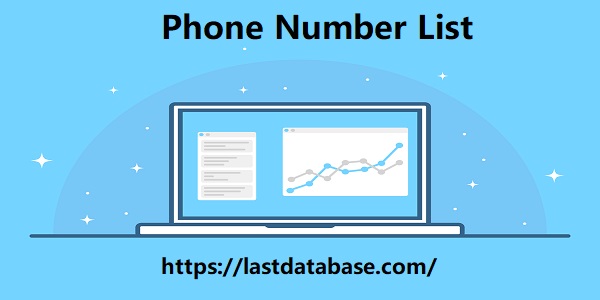Post by account_disabled on Mar 12, 2024 5:35:23 GMT
When we create a layout in Photoshop, we can save it in HTML, which will be automatically generated by the software along with a folder containing the images it uses. Sometimes, in the rush of the day, this option may seem like an excellent help to generate quick email marketing, but HTML that is automatically generated – by any software – is not suitable for email marketing . The HTML language is not only used to create email marketing, but also websites and web applications. Each of these projects has its own particularities and limitations, and when we generate automatic HTML using graphics software, it will not know whether this HTML is to be used on a website, in email marketing or anything else. Then the software will create the HTML in the most practical way it can, using tags and attributes that will not always work properly in the email environment – and even without using those that would be super important.
Example HTML automatically generated by Photoshop Here we have the HTML of an email marketing layout that was automatically generated from Photoshop. Note, in lines 8 and 27 of this code, the presence of comments that indicate that the file was generated automatically. This type of comment is very often responsible for email marketing being considered spam in certain email programs. Furthermore, notice, in the image tags, the absence of the display: blockCSS property, which is responsible for making the image slices Phone Number List stick together, and not separated by a white space of almost 5px. The attribute that makes this layout centered in the message area is also missing. As it stands, the email will be displayed left-aligned in the email program. The tag title, at the top of the HTML, contains the name of the original file that was being used in Photoshop and, depending on the terms present there - if there is a suspicious expression of spam - it could be another factor that makes the email server classify the message as spam.

For this example, you can see that the HTML code automatically generated by Photoshop – or any other graphic software that will do something similar – can be very bad for your email marketing. 4. TEXT ASKING THE RECIPIENT TO RESPOND TO THE MARKETING EMAIL TO UNSUBSCRIBE Just over 10 years ago, the practice of sending email marketing using an everyday email program – instead of a suitable platform – was very common. Outlook at the time made this job easier and people started abusing it. Email servers began to fill up with commercial messages that were sent en masse from an inadequate structure. No matter how many senders, from the most varied business segments, adopted this practice, their messages had something in common: most of the time, there was the message “reply to this email to stop receiving our messages”. This, of course, was rarely respected. So, so that the servers would no longer be overloaded with all this volume of messages sent, their administrators created this rule in the anti-spam filters to check the presence of any text similar to “reply to this email”. If this were present in the message, it would greatly increase its chances of being delivered to the spam folder.
Example HTML automatically generated by Photoshop Here we have the HTML of an email marketing layout that was automatically generated from Photoshop. Note, in lines 8 and 27 of this code, the presence of comments that indicate that the file was generated automatically. This type of comment is very often responsible for email marketing being considered spam in certain email programs. Furthermore, notice, in the image tags, the absence of the display: blockCSS property, which is responsible for making the image slices Phone Number List stick together, and not separated by a white space of almost 5px. The attribute that makes this layout centered in the message area is also missing. As it stands, the email will be displayed left-aligned in the email program. The tag title, at the top of the HTML, contains the name of the original file that was being used in Photoshop and, depending on the terms present there - if there is a suspicious expression of spam - it could be another factor that makes the email server classify the message as spam.

For this example, you can see that the HTML code automatically generated by Photoshop – or any other graphic software that will do something similar – can be very bad for your email marketing. 4. TEXT ASKING THE RECIPIENT TO RESPOND TO THE MARKETING EMAIL TO UNSUBSCRIBE Just over 10 years ago, the practice of sending email marketing using an everyday email program – instead of a suitable platform – was very common. Outlook at the time made this job easier and people started abusing it. Email servers began to fill up with commercial messages that were sent en masse from an inadequate structure. No matter how many senders, from the most varied business segments, adopted this practice, their messages had something in common: most of the time, there was the message “reply to this email to stop receiving our messages”. This, of course, was rarely respected. So, so that the servers would no longer be overloaded with all this volume of messages sent, their administrators created this rule in the anti-spam filters to check the presence of any text similar to “reply to this email”. If this were present in the message, it would greatly increase its chances of being delivered to the spam folder.
